On its website, NCU players and coaches share their own growing-up struggles, like overcoming stuttering and learning disabilities, while supporting today’s young people in surmounting their social stigmas. The NCU Playbook’s “End Bullying Zone” also diagrams specific plays parents can use to block abuse like looking for specific warning signs.
It wouldn’t be NFL football, however, if there wasn’t another team pursing the opposite goal. No, the league hasn’t officially fielded a team to bolster bullying, but the latest DirecTV ad campaign for NFL Sunday Ticket comes close.
Each of the new commercials features a well-known NFL player who appears in the ad both as his cool, DirecTV-watching self and as a cable-constricted alter ego—some socially strange version of the man, made as unappealing as possible. The cast of contrived characters includes Arts & Crafty Tony Romo, Out-of-Control Beard Andrew Luck, Bad Comedian Eli Manning, Petite Randy Moss, and Really High Voice Payton Manning. Of course, the NFL Sunday Ticket ads are knock-offs of another celebrated DirecTV campaign that recently featured Rob Lowe and ten of his own alter egos.
All of these ads are examples of comparative advertising, the practice of disparaging a competitor’s offering in one’s own ad. Although somewhat uncommon because of its risky nature, the promotional approach is especially evident around election time when many politicians find it effective to put down their opponents in order to elevate their own campaign stock.
As the FTC’s 1979 “Statement of Policy Regarding Comparative Advertising” suggested, truthful comparative advertising can benefit consumers. Companies often leverage classical conditioning to extend the positive characteristics of people, including celebrities, onto their goods and services. For example, a 30 second TV spot for Insperity transfers the trustworthiness of renowned sports broadcaster Jim Nance to the lesser-known HR services provider. Unfortunately, however, it’s become common for companies to use comparative ads to extend the negative qualities of “undesirable” people onto competing brands.
This genre of people comparison is not new. Apple famously analogized actors in its iconic Mac vs. PC ads in which a hip Justin Long epitomized the cool and consistent Mac, while a frumpy John Hodgman personified the unpredictable and pretentious PC. More recently, a similar-looking ad for HomeAdvisor featured a tall and fashionably dressed blond woman maintaining the merits of the focal brand, while a shorter brunette actress, outfitted in passé apparel, argued futilely for the key competitor: Angie’s List.
People comparison commercials like those for DirecTV’s NFL Sunday ticket land laughs, but they also imply a dangerous message: that it’s okay to pick on people because they look and/or act differently.
Granted, the DirecTV ads are intended to be over-the-top exaggerations that viewers would not take seriously, but the examples may not be that far flung. For instance, perhaps no one is as unusual as “Arts & Crafty Tony Romo,” but there are plenty of people who prefer creativity to competition and who don’t deserve to be the object of a cutting caricature. In fact, those types of caricatures historically have helped to perpetuate negative stereotypes harmful to specific people groups.
At least one of DirecTV’s demeaning ads isn’t hyperbole at all. In his 14-year career as an NFL receiver, Randy Moss benefited from his 6’ 4” stature. Given that the average height for American men is 5’ 9 ½”, there are also many men who are much shorter than the mean, some of whom struggle with insecurity about their height.
Philadelphia Eagles running back Darren Sproles, who stands about 5’ 6”, has been one of the league’s most exciting players for a decade. He also is part of the NFL Characters Unite team, tasked with stopping shaming. One might wonder how the smaller-than-average Sproles feels about NFL Sunday Ticket’s parody “Petite Randy Moss” whose feet can’t touch the coffee table and whose arms can’t reach the higher shelves in the grocery store.
The NFL once again finds itself in a formation of contradiction. On one side of the line NCU players battle bullying. On the other side top NFL talent endorses derision of people who are different. It seems like there could be a more sensitive and effective way for DirecTV to promote NFL Sunday Ticket, perhaps, for instance, by actually showing football! Although these ads may be memorable, it’s unlikely that they really persuade people about DirecTV, or create long-term stakeholder value.
On the other hand, the commercials do succeed in encouraging derision of those who are different, which certainly is not a desirable societal value. Perhaps if advertising focuses more on comparing products and not people, we’ll sooner abandon such “Mindless Marketing” and arrive at a place where it isn’t acceptable to putdown people, period.
Learn more about the Mindful Matrix and Mindful Meter.
Check out Mindful Marketing Ads and Vote your Mind!

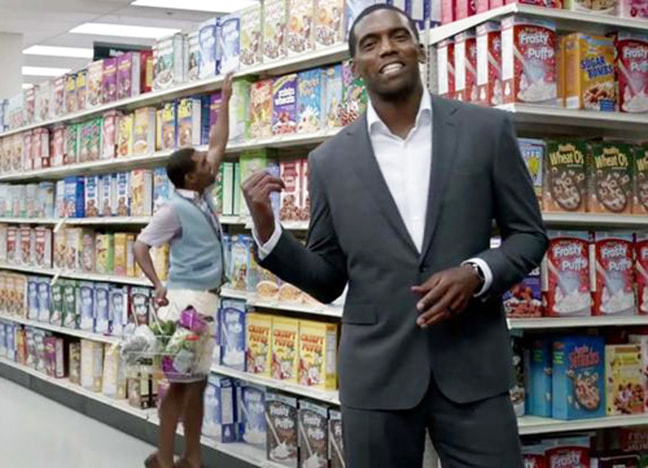
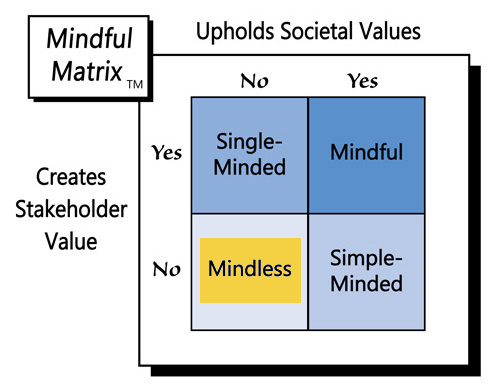
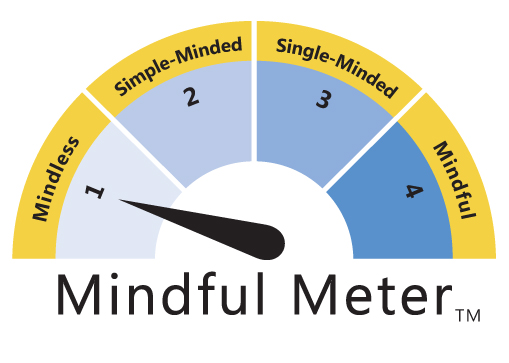

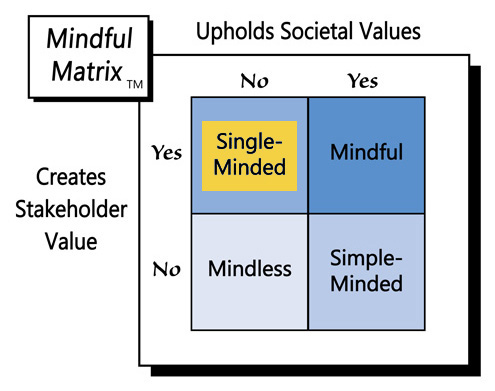
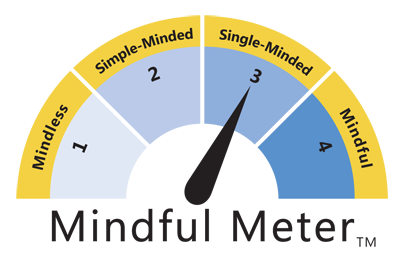
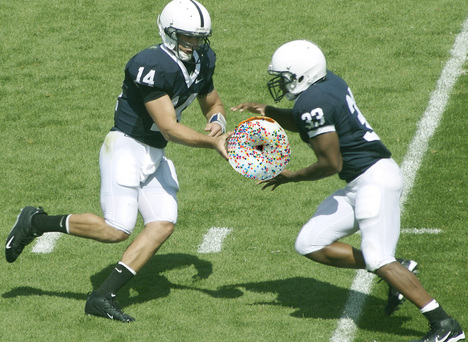
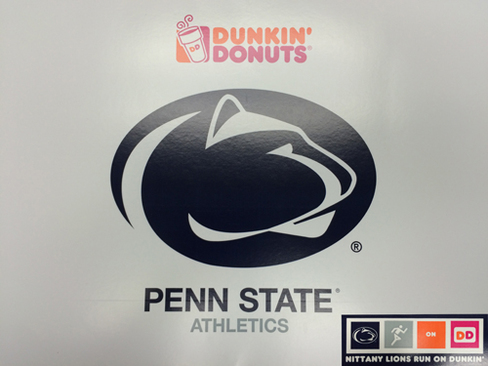
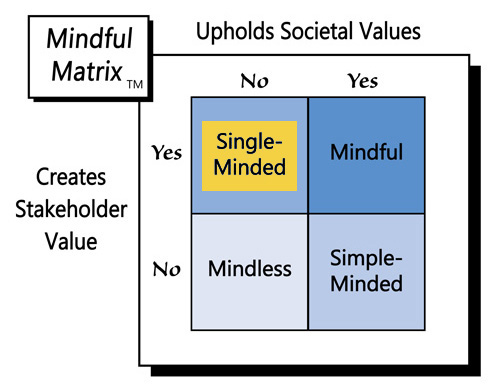
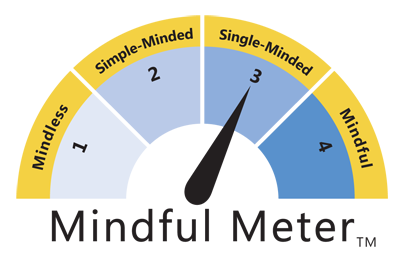

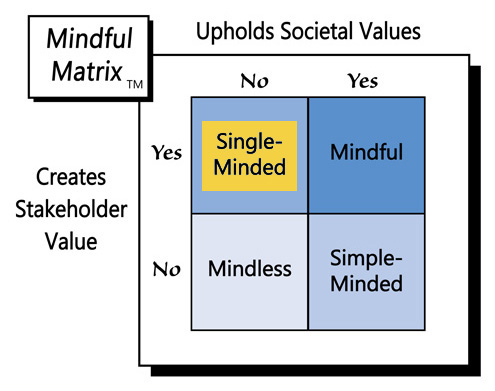
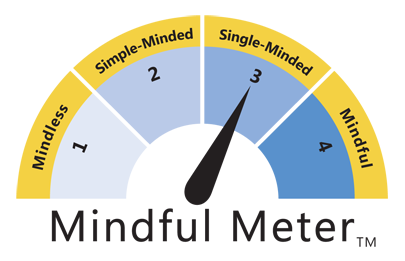

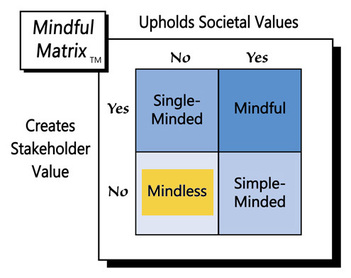
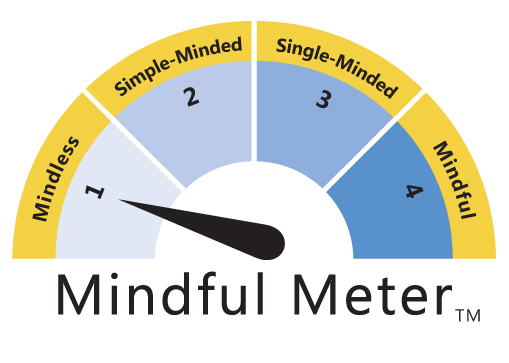
 RSS Feed
RSS Feed